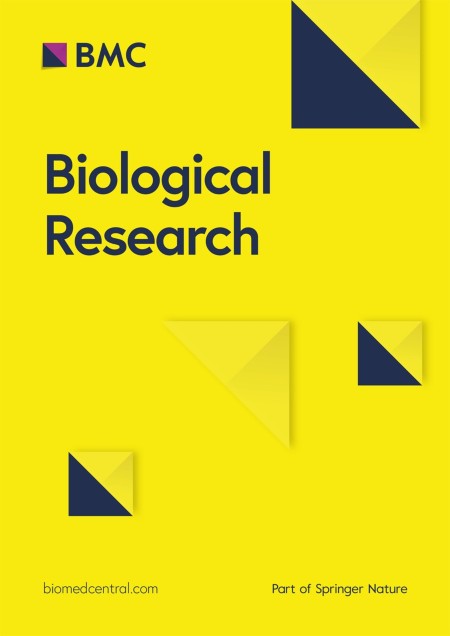Fibroblasts inhibit osteogenesis by regulating nuclear-cytoplasmic shuttling of YAP in mesenchymal stem cells and secreting DKK1
IF 4.3
2区 生物学
Q1 BIOLOGY
引用次数: 0
Abstract
Fibrous scars frequently form at the sites of bone nonunion when attempts to repair bone fractures have failed. However, the detailed mechanism by which fibroblasts, which are the main components of fibrous scars, impede osteogenesis remains largely unknown. In this study, we found that fibroblasts compete with osteogenesis in both human bone nonunion tissues and BMP2-induced ectopic osteogenesis in a mouse model. Fibroblasts could inhibit the osteoblastic differentiation of mesenchymal stem cells (MSCs) via direct and indirect cell competition. During this process, fibroblasts modulated the nuclear-cytoplasmic shuttling of YAP in MSCs. Knocking down YAP could inhibit osteoblast differentiation of MSCs, while overexpression of nuclear-localized YAP-5SA could reverse the inhibition of osteoblast differentiation of MSCs caused by fibroblasts. Furthermore, fibroblasts secreted DKK1, which further inhibited the formation of calcium nodules during the late stage of osteogenesis but did not affect the early stage of osteogenesis. Thus, fibroblasts could inhibit osteogenesis by regulating YAP localization in MSCs and secreting DKK1. Our research revealed that fibroblasts could modulate the nuclear-cytoplasmic shuttling of YAP in MSCs, thereby inhibiting their osteoblast differentiation. Fibroblasts could also secrete DKK1, which inhibited calcium nodule formation at the late stage of osteogenesis.成纤维细胞通过调节间充质干细胞中 YAP 的核-胞质穿梭和分泌 DKK1 抑制成骨过程
当修复骨折的尝试失败后,骨不连部位经常会形成纤维疤痕。然而,作为纤维疤痕主要成分的成纤维细胞阻碍骨生成的详细机制仍不为人知。在这项研究中,我们发现成纤维细胞在人类骨不连组织和 BMP2- 诱导的异位成骨小鼠模型中都会与成骨竞争。成纤维细胞可通过直接和间接的细胞竞争抑制间充质干细胞的成骨分化。在这一过程中,成纤维细胞调节间充质干细胞中YAP的核-胞质穿梭。敲除YAP可抑制间充质干细胞的成骨细胞分化,而过表达核定位的YAP-5SA可逆转成纤维细胞对间充质干细胞成骨细胞分化的抑制。此外,成纤维细胞分泌的DKK1可进一步抑制成骨晚期钙结节的形成,但不影响成骨早期。因此,成纤维细胞可通过调节间充质干细胞中YAP的定位和分泌DKK1来抑制成骨。我们的研究发现,成纤维细胞可以调节间充质干细胞中YAP的核-胞质穿梭,从而抑制其成骨细胞分化。成纤维细胞还能分泌DKK1,从而抑制成骨后期的钙结节形成。
本文章由计算机程序翻译,如有差异,请以英文原文为准。
求助全文
约1分钟内获得全文
求助全文
来源期刊

Biological Research
生物-生物学
CiteScore
10.10
自引率
0.00%
发文量
33
审稿时长
>12 weeks
期刊介绍:
Biological Research is an open access, peer-reviewed journal that encompasses diverse fields of experimental biology, such as biochemistry, bioinformatics, biotechnology, cell biology, cancer, chemical biology, developmental biology, evolutionary biology, genetics, genomics, immunology, marine biology, microbiology, molecular biology, neuroscience, plant biology, physiology, stem cell research, structural biology and systems biology.
 求助内容:
求助内容: 应助结果提醒方式:
应助结果提醒方式:


